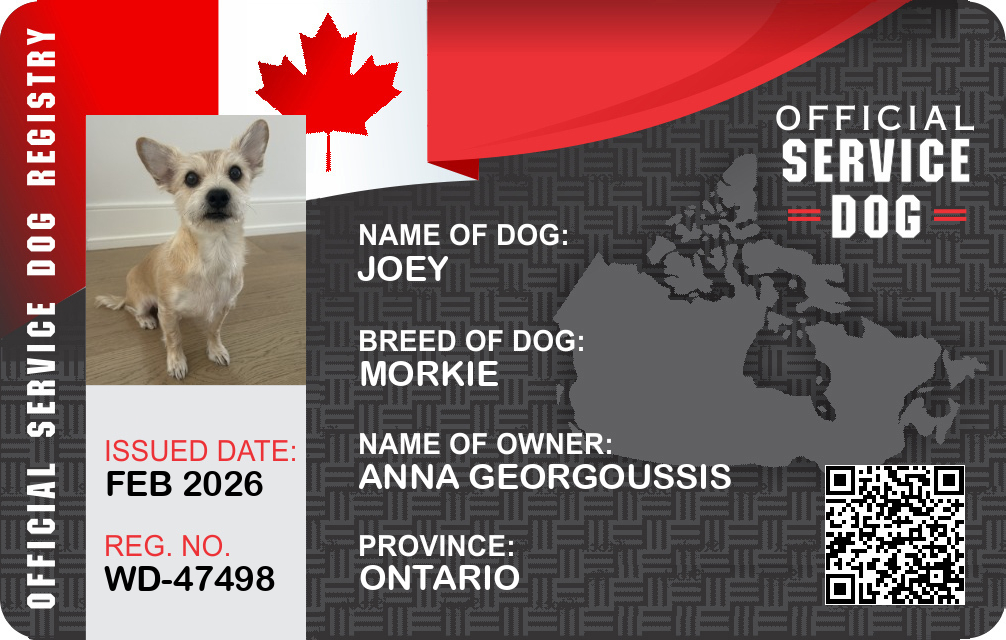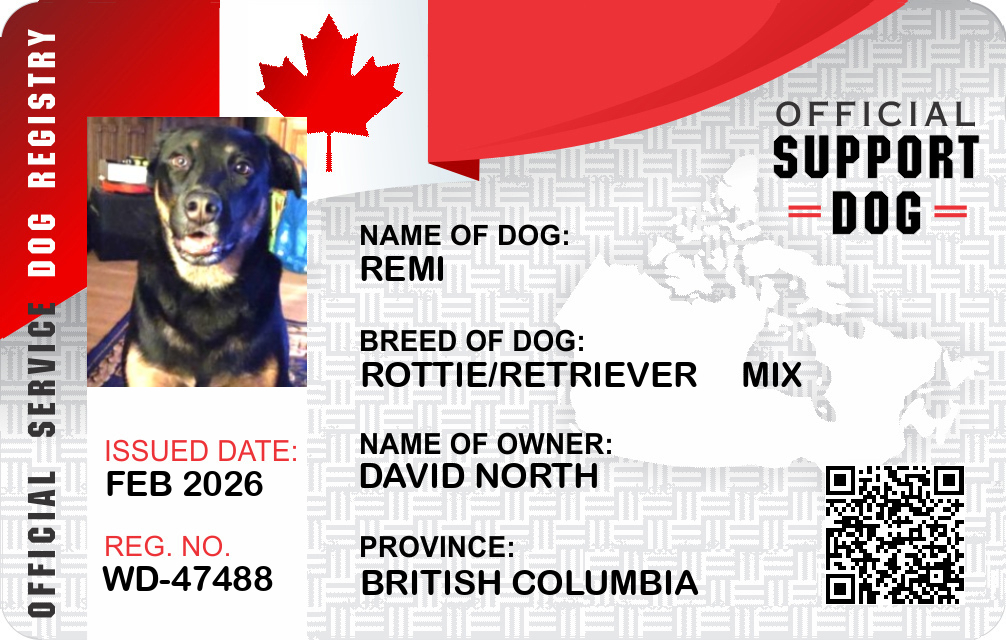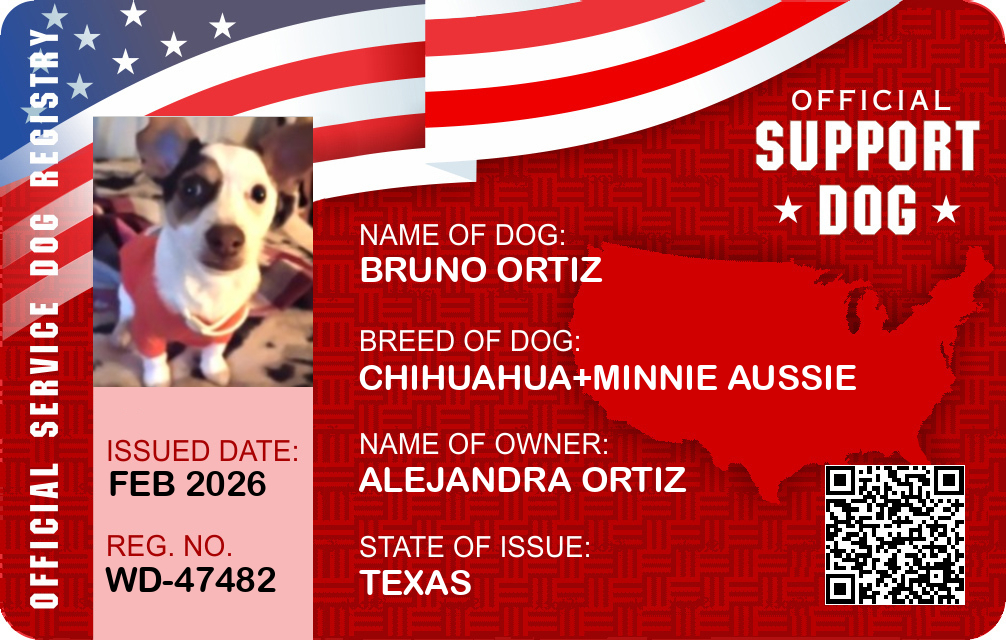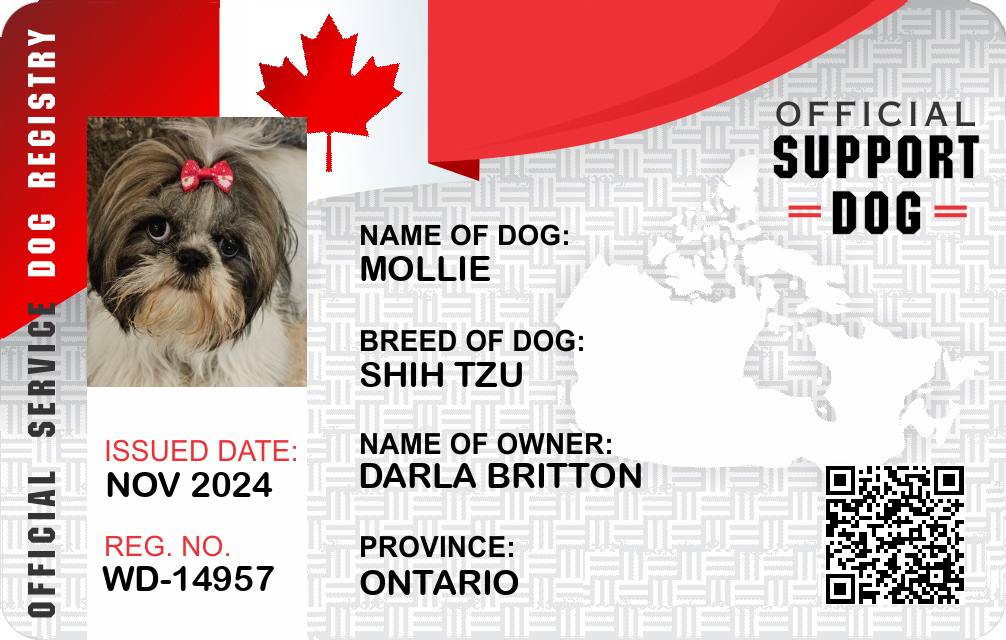Kentucky Service Dog Laws
Get Your Documents
Example State Cards

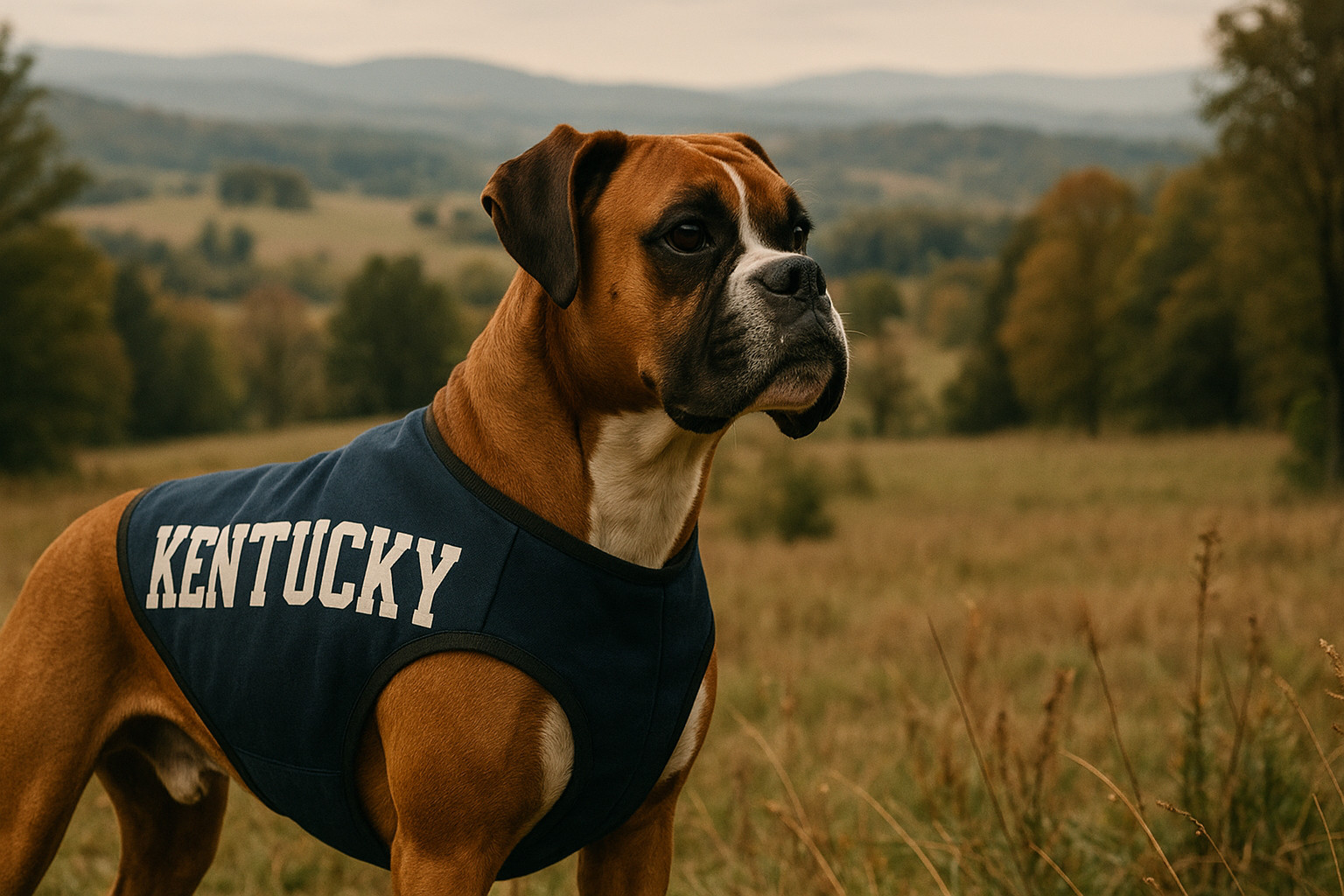
Overview of Service Dog and Legal Definitions in Kentucky
What is a Service Dog?
In Kentucky, as in the broader United States, service dogs are explicitly defined under the Americans with Disabilities Act (ADA) as dogs that are individually trained to perform tasks or do work for people with disabilities. This work can encompass a variety of activities, such as guiding individuals with visual impairments, alerting those with hearing impairments, pulling a wheelchair, or assisting individuals during seizures. The key component is the specific training that enables the dog to mitigate their handler’s disability.
How Service Dogs Differ from Other Types of Assistance Animals
Service dogs differ significantly from other assistance animals, such as emotional support animals (ESA) or therapy animals. ESA provide comfort simply by their presence and do not require specialized training to perform specific tasks related to a disability. Unlike service dogs, ESA do not have the same public access rights as service animals, though they may have housing rights under the Fair Housing Act (FHA). Therapy animals are often used in institutions and provide psychological or physiological therapy to others under the guidance of a handler.
Key Federal Laws Affecting Service Dogs (e.g., ADA, FHA, ACAA)
The ADA is the primary federal law that governs the rights of service animals, granting them access to most public places. The ADA defines a service animal strictly as a dog (or in some cases, miniature horse) trained to perform tasks for a person with a disability. The Fair Housing Act (FHA) supports individuals living with service animals by ensuring reasonable accommodations in housing situations, overriding any “no pets” policies. The Air Carrier Access Act (ACAA) mandates that airlines permit service animals to accompany their handlers in the cabin of aircraft, subject to safety or health restrictions.
State-Specific Service Dog Laws in Kentucky
Kentucky’s state laws align closely with federal regulations on service animals but include additional stipulations. Under Kentucky law, the definition and rights of service dogs are consistent with federal guidelines, ensuring uniformity in the recognition and protections afforded to handlers. However, Kentucky extends its own specific penalties for misrepresenting a pet as a service animal, reflecting an emphasis on integrity and care within this domain.
Housing Rights and Responsibilities
In Kentucky, as dictated by the FHA, landlords are required to make reasonable accommodations for service dogs notwithstanding general “no pets” policies stipulated in rental agreements or housing cooperatives. Service dog handlers in Kentucky benefit from these protections without needing to pay pet deposits or fees. However, they can be held accountable for any damage the animal may cause to the property. The FHA further requires that housing providers make these accommodations without imposing additional hassles or discrimination based on disability.
Public Access and Accommodation
The ADA’s implementation ensures that in Kentucky, handlers of service dogs can access public spaces equally with other patrons. This encompasses venues such as restaurants, hotels, retail stores, and theaters. While establishments cannot charge additional fees for the service of a service dog, the handlers are accountable for their dog’s behavior. A service dog must remain well-behaved and under control while in public, or a business may have the right to request its removal, although the patron must still be allowed to access the goods or services provided.
Transportation and Travel Rules
Kentucky acknowledges the requirements of the ACAA, which mandates that service dogs are permitted to fly with their handlers without additional charges. Passengers need not pre-arrange their travel plans regarding their service animals, though airlines typically appreciate such notifications. Dogs must fit within the handler’s foot space and large breeds may require additional planning. Public transportation, such as buses and trains in Kentucky, similarly permits service dogs as stipulated in the ADA, ensuring equal access to services and facilities offered by public transit agencies.
Employment and Workplace Considerations
In the workplace, the ADA mandates that accommodations be made for service dogs assisting employees with disabilities. Employers in Kentucky must provide reasonable accommodations unless this results in undue hardship. Employers can request limited documentation showing the necessity of the service dog, but they cannot infringe upon the privacy of the employee’s medical details. Open dialogue between the employee with a service dog and the employer can help in arranging practical workspace modifications.
Documentation, Requirements, and Processes in Kentucky
Service Dog Documentation and Who Can Issue It
Officially, there is no requirement for registration or certification of service dogs in Kentucky, congruent with federal ADA guidelines. However, service dog handlers may obtain certification from recognized training organizations. Though not legally binding, such documentation may ease interactions in situations that warrant verification, such as certain housing or travel conditions. It is integral to recognize that tangible evidence such as registration cards or distinctive vests are not legally required nor determine the legitimacy of a service animal.
Landlord, Business, and Provider Verification Rules
Under Kentucky regulations, verification questions are strictly limited in scope. A person with a service dog should be prepared to answer only two permissible questions: whether the dog is required due to a disability and what tasks it has been trained to perform. Detailed inquiries about the individual’s disability or requesting proof of training are not allowed, preserving the privacy and dignity of service dog handlers.
Rights, Limitations, and Legal Risks
Rights Service Dog Handlers Have in Kentucky
Service dog handlers in Kentucky possess a broad spectrum of rights that ensure equal access to public areas, services, and housing. These align with federal statutes like the ADA, allowing handlers to enter most public establishments with their service dogs without facing discrimination. Such rights enable handlers to participate fully in societal activities with fewer barriers, thanks to the enhanced acknowledgment and protection provided by the law.
Limits on Service Dog Protections and Common Restrictions
Service dog rights in Kentucky have specific limitations, particularly around behaviour and safety. Handlers may be asked to remove their service dogs if they are disruptive, aggressive, or if the dog becomes a direct threat to the health or safety of others. Areas that might exclude service animals on safety grounds include surgical suites, sterile environments, or certain historical buildings where dogs may cause damage to fragile interiors.
Penalties for Fraud or Misrepresentation
Kentucky has instituted penalties for individuals falsely representing their pets as service dogs. This includes fines or misdemeanor charges, reflecting the seriousness with which the state regards this issue. This is part of a broader movement to protect the integrity and public perception of genuine service dogs, ensuring that they and their handlers are afforded the respect and recognizability necessary for full integration into public life.
Practical Guidance for Service Dog Handlers in Kentucky
How to Qualify for a Service Dog Legitimately
To qualify for a service dog in Kentucky, an individual must have a disability that significantly impairs major life activities. Establishing the need for a service dog typically involves consultation with healthcare professionals who can assess the requirements for specific task assistance. Additionally, engaging with reputable service dog training programs can equip handlers and dogs with customized training to meet the handler’s needs.
How to Talk to Landlords, Airlines, and Employers
When discussing service dogs with landlords, airlines, or employers, it’s beneficial for handlers to approach conversations equipped with knowledge of their rights and respectful of the entity’s need to verify the necessary accommodations. Clearly articulating the tasks a service dog performs can foster understanding and cooperation. Being proactive in communication and presenting documentation when helpful, even if not required, can smooth negotiations.
Summary of Service Dog Laws in Kentucky
In summary, understanding Kentucky’s service dog laws involves blending federal mandates with state-specific details. Service dog handlers must remain cognizant of their rights in public settings, housing, and employment, while also recognizing the limitations and behavioral expectations for their animals.
**
- Service dogs must be individually trained to perform tasks related to a handler’s disability.
- Kentucky law mirrors federal guidelines, ensuring broad access rights in public spaces.
- Service animals have access rights, whereas emotional support animals do not.
- Handlers must manage their dog’s behavior in public and housing accommodations.
- Verification questioning is limited to essential inquiries regarding service tasks.
- Misrepresentation of service animals incurs legal penalties in Kentucky.
- Effective communication is key in facilitating accommodations across various sectors.
This comprehensive understanding of service dog laws helps in ensuring that handlers and service dogs in Kentucky can navigate public, private, and professional spaces with clarity and respect for the legal frameworks in place.
Get Your Documents
Example State Cards





